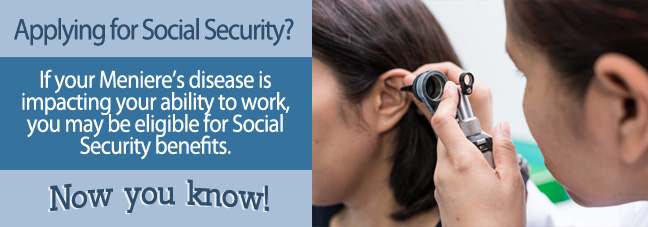Meniere’s disease is a condition that affects the inner ear. If you suffer from this condition, you will find that an attack of it is very debilitating, and you might need several hours to recover from an episode. These attacks might be isolated incidents that occur once every few years, or they could be recurring, with multiple episodes during a day. The symptoms can include feeling like you are falling or tilted, so you will jerk upright and then fall. These can be serious falls that cause injuries. The loss of hearing seems to temporarily recover after an attack, but as time progresses, the hearing loss becomes permanent.
There isn’t a known cause of Meniere’s disease, but it is believed to result from the fluctuating levels of fluid in the ear because of underlying structural issues. Some medical experts think that viral infections of the inner ear, genetics, allergies, or head injuries could be underlying causes. Some researchers think they have found a connection between immune system disorders and Meniere’s disease. To file a disability claim for Meniere’s disease, you will need to provide proof of your diagnosis and show your limitations and restrictions because of the condition.
Different Kinds of Disability Benefits
The Social Security Administration, also known as the SAA, manages two disability programs. The first, Social Security Disability Insurance (SSDI), is based on your work history and earnings. To qualify for SSDI, you must have worked enough to earn adequate credits, which is usually about equal to five years out of the last 10 in full-time employment. You also need to match a listing in the SSA's Blue Book. Your benefits are based on your average earnings. Your spouse and dependent children may qualify for auxiliary benefits, which are based on your earnings, and usually get about half of your monthly benefit check up to the maximum allowable amount for your family.
Supplemental Security Income (SSI), on the other hand, is a needs-based program, and you must meet specific income requirements and have limited resources to qualify for SSI along with meeting the standard medical criteria to be approved. As of 2025, the income limit for SSI is $1,450 per month for a couple, but not all income is counted. The maximum payable amount is $967 per month for an individual, but you may be able qualify for SSI benefits with an income higher than this amount. You may require the help of an attorney to determine if your finances meet the requirements to qualify for SSI benefits.

The Application Process
To start your application for disability benefits, you can visit www.ssa.gov or call 1-800-772-1213 and either talk with a representative or schedule an appointment at your local SSA office. Remember, documentation is essential for a successful claim, so gather up a detailed list of your medical providers, including dates of service and contact details, so Disability Determination Services can access your detailed medical records to confirm your conditions, limitations, and restrictions. The more documentation and supporting evidence that you can provide, the more likely you are to have a successful disability claim. Use the Blue Book as a guide when applying for SSDI.